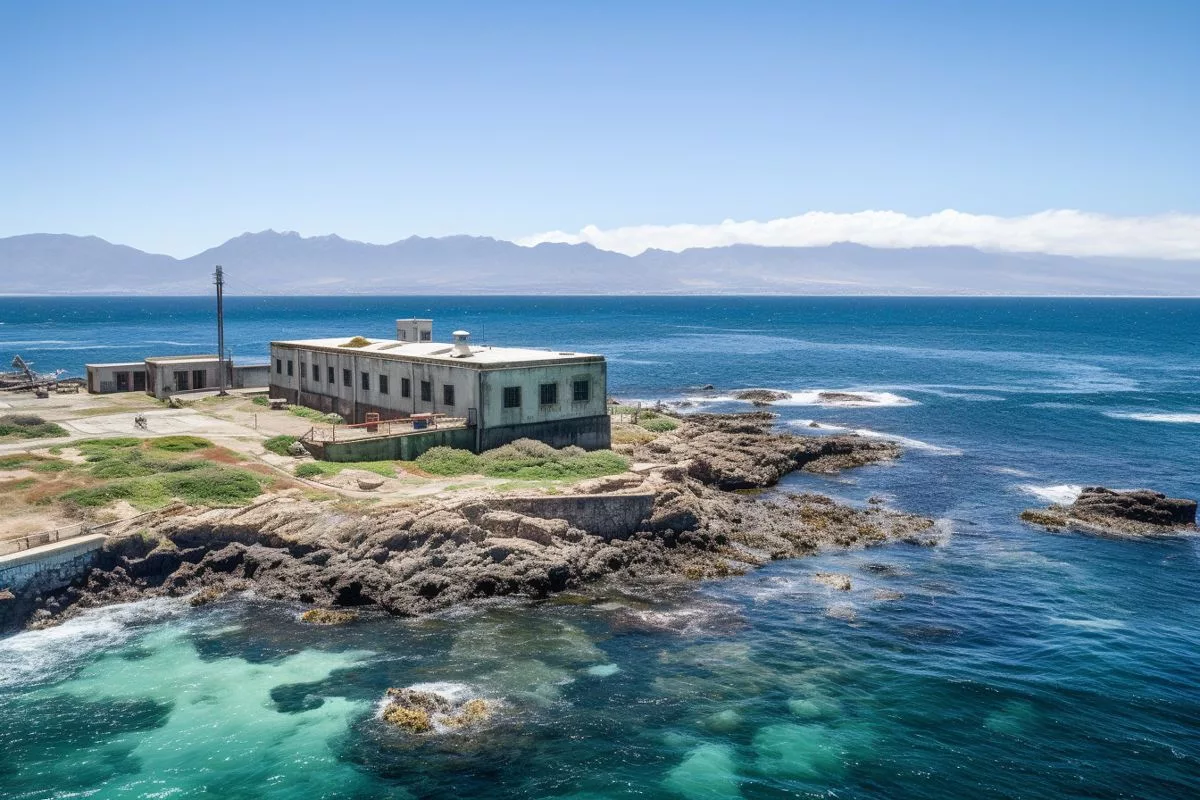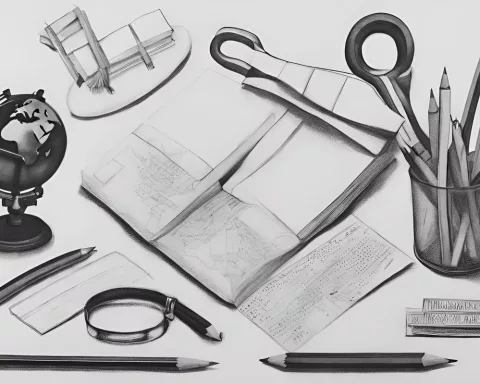Robben Island, a UNESCO World Heritage Site with a rich history, is facing bureaucratic difficulties in its preservation. The Robben Island Museum (RIM) is advocating for a power shift to safeguard the island’s preservation for future generations, proposing that the Department of Public Works and Infrastructure (DPWI) cede its maintenance responsibilities and budget to the RIM. The transfer could potentially bypass bureaucratic roadblocks, but budget constraints remain a significant obstacle. Members of Parliament are calling for improved communication and a more active approach to maintenance to prevent degradation or privatization of heritage sites like Robben Island.
The ongoing contention over Robben Island’s preservation
Advocacy from the Robben Island Museum (RIM) for a power shift is central to the debate, as the museum pushes for changes that could safeguard the island’s preservation for future generations. Thulare has suggested a solution to enhance the management process and hasten necessary repairs.
The Ongoing Contention Over Robben Island’s Preservation
Robben Island, a UNESCO World Heritage Site rich in South African history, is currently embroiled in bureaucratic difficulties. The controversy revolves around the issue of maintaining this historic site. Advocacy from the Robben Island Museum (RIM) for a power shift is central to the debate, as the museum pushes for changes that could safeguard the island’s preservation for future generations.
The RIM has voiced its dissatisfaction over the delayed response to maintenance issues, attributing this delay to the lack of sufficient involvement from the pertinent department. This matter was brought to the limelight by Abigail Thulare, the Chief Executive Officer of RIM, who emphasized the urgent need to maintain the island’s integrity.
Thulare has suggested a solution to enhance the management process and hasten necessary repairs. She proposes the Department of Public Works and Infrastructure (DPWI) cede its maintenance responsibilities and the accompanying budget to the RIM. Thulare posits that if the museum assumes the role of implementation, efficiency can be improved, while the DPWI can still maintain overall supervision, promoting a dynamic balance of power.
Challenges and Proposals for Robben Island’s Preservation
Thulare’s proposal underscores a significant obstacle in the preservation process: budget constraints. It appears that not all maintenance requests receive approval, thereby undermining efforts to keep the historical site in optimal condition. The transfer of maintenance responsibilities to the RIM could potentially bypass such bureaucratic roadblocks.
The DPWI did initiate an asbestos removal assessment on the island earlier this year, but their findings have not been shared with either RIM or the Department of Sport, Arts and Culture (DSAC). This obscurity fuels the demand for a shift in maintenance powers. Thulare asserts that cooperation among stakeholders is crucial for effective maintenance, a sentiment underscored by the recent removal of asbestos debris by the RIM itself.
Members of Parliament have voiced concerns over the evident communication gaps between the departments involved. Economic Freedom Fighters (EFF) MP Mathapelo Siwisa questioned the DPWI’s management of the situation and advocated for a more active approach, including a daily budget for urgent repairs. Siwisa warned that without improvement in the current situation, heritage sites like Robben Island might face degradation or, worse, privatization.
The Broader Context and Future of Robben Island
Echoing Siwisa’s sentiments, Democratic Alliance (DA) MP Sello Seitlholo stressed the DPWI’s duty to lead maintenance efforts and collaborate with relevant departments.
The demand for self-governance is not limited to the RIM. Other organizations have reportedly exhibited a similar inclination, highlighting the need to reconsider existing policies. Acting Director-General Advocate Richard Sizani recognized these concerns and noted that instructions have been issued from Minister Sihle Zikalala to review the policy on facility management devolution.
As conversations proceed and policy reviews are initiated, the hope remains that the necessary changes will be made to safeguard this esteemed symbol of South Africa’s history. Robben Island, an emblem of endurance, defiance, and liberation, is currently navigating a bureaucratic maelstrom. The objective is to ensure that this cherished heritage site is preserved for future generations to appreciate and learn from.
1. What is Robben Island?
Robben Island is a UNESCO World Heritage Site rich in South African history. It is an esteemed symbol of endurance, defiance, and liberation.
2. What is the ongoing contention over Robben Island’s preservation?
Robben Island is facing bureaucratic difficulties in its preservation. The Robben Island Museum (RIM) is advocating for a power shift to safeguard the island’s preservation for future generations, proposing that the Department of Public Works and Infrastructure (DPWI) cede its maintenance responsibilities and budget to the RIM.
3. What is the RIM’s proposal to enhance the management process and hasten necessary repairs?
The RIM proposes that if the museum assumes the role of implementation, efficiency can be improved, while the DPWI can still maintain overall supervision, promoting a dynamic balance of power.
4. What is the significant obstacle in the preservation process?
Budget constraints remain a significant obstacle. It appears that not all maintenance requests receive approval, thereby undermining efforts to keep the historical site in optimal condition.
5. What are the concerns raised by Members of Parliament?
Members of Parliament are calling for improved communication and a more active approach to maintenance to prevent degradation or privatization of heritage sites like Robben Island.
6. What is the hope for the future of Robben Island?
As conversations proceed and policy reviews are initiated, the hope remains that the necessary changes will be made to safeguard this esteemed symbol of South Africa’s history. The objective is to ensure that this cherished heritage site is preserved for future generations to appreciate and learn from.












